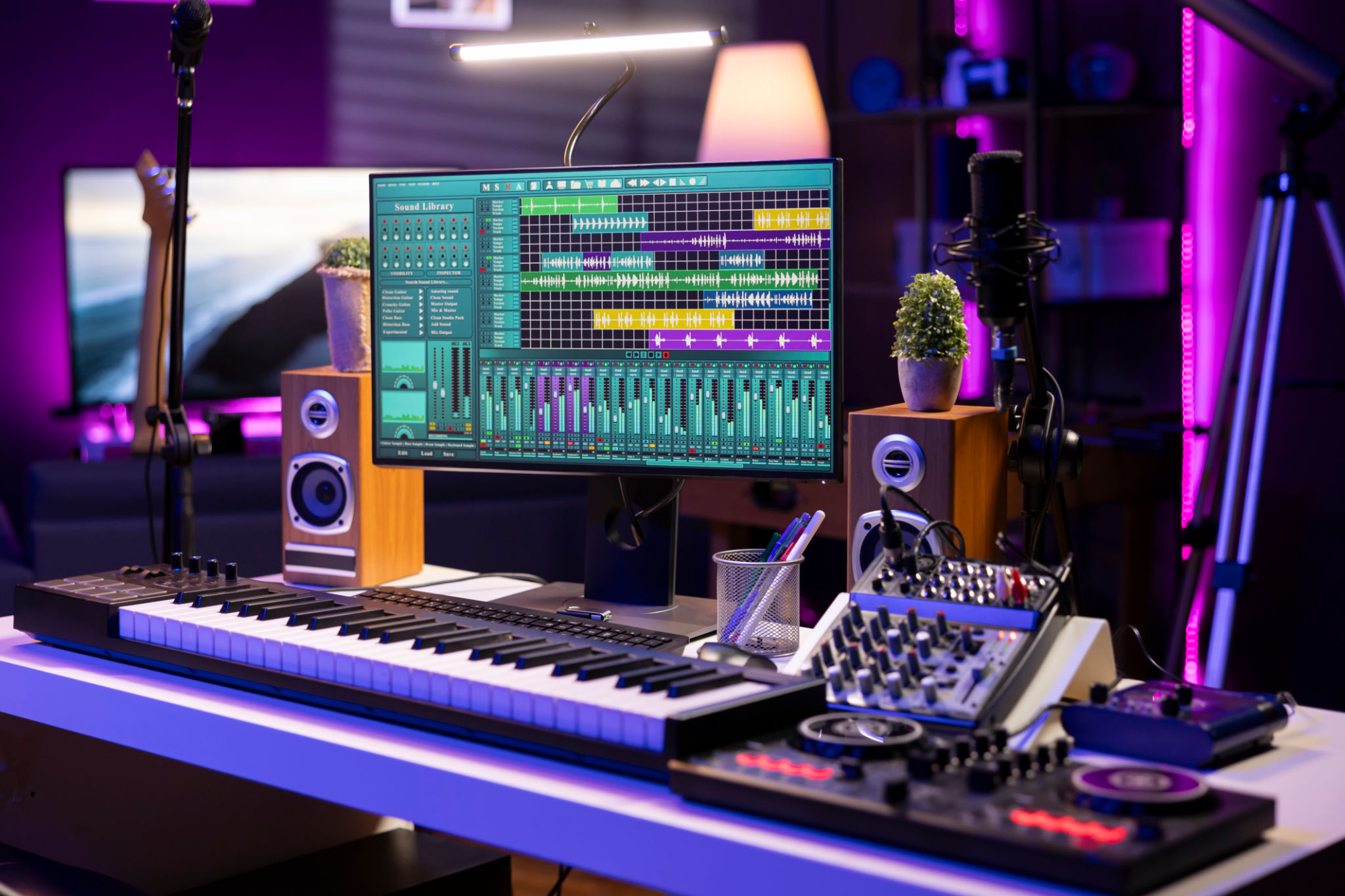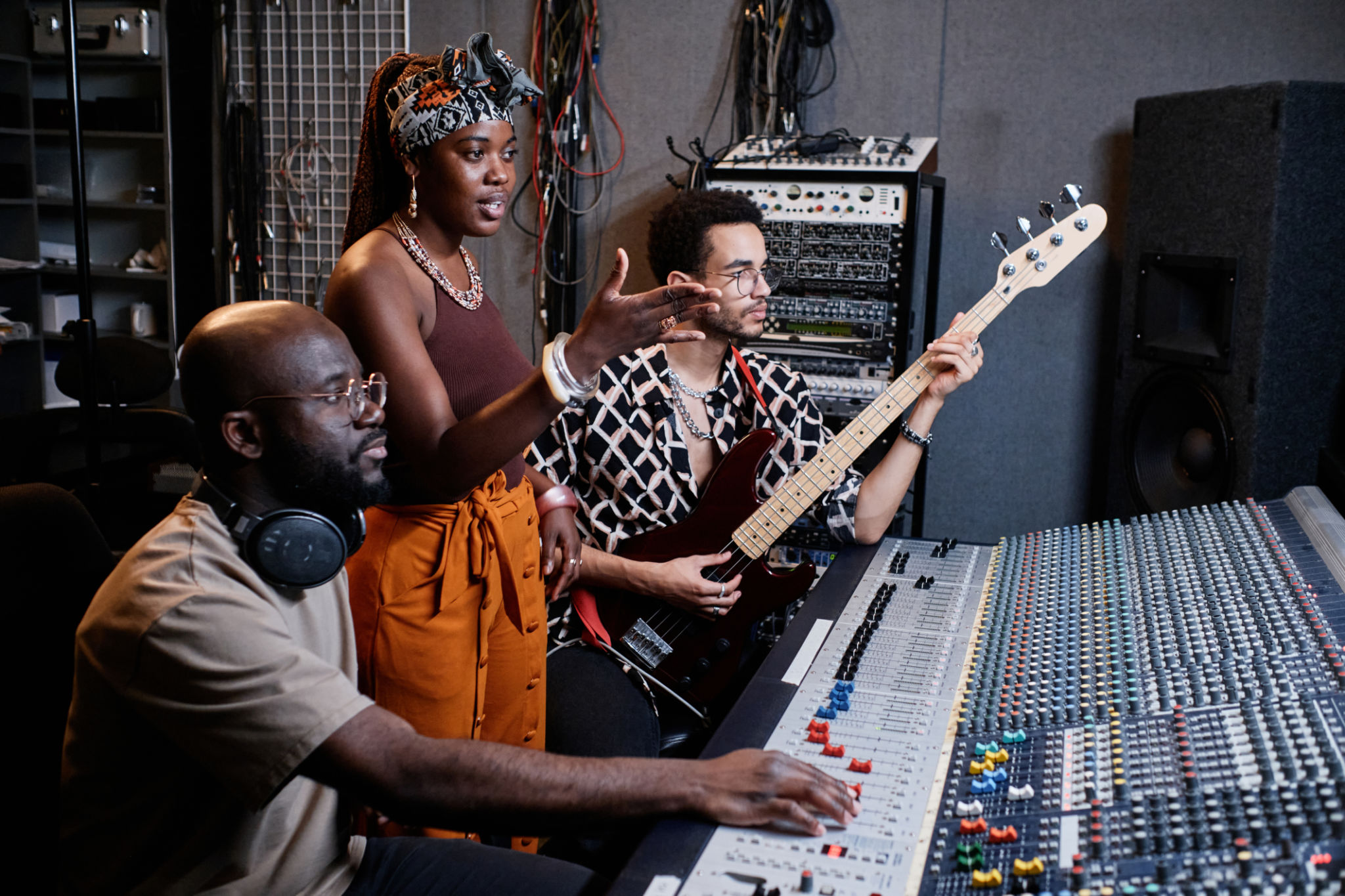Trends in Music Production: What Every Producer Needs to Know
Embracing the Digital Revolution
The landscape of music production has been significantly transformed by the digital revolution. Today, producers have access to a plethora of digital audio workstations (DAWs) and virtual instruments that have democratized music creation. The rise of platforms like Ableton Live, Logic Pro, and FL Studio allows producers to create professional-quality tracks from virtually anywhere. This accessibility is empowering more creators to share their unique sounds with the world.

Moreover, the integration of artificial intelligence in music production tools is opening up new possibilities. AI-driven plugins can now assist in everything from mixing and mastering to songwriting and sound design, providing artists with an expanded toolkit to innovate and experiment.
The Rise of Home Studios
Gone are the days when you needed a large studio space to produce music. The trend towards home studios continues to grow, driven by advancements in affordable recording equipment and software. High-quality microphones, audio interfaces, and monitors are now accessible to hobbyists and professional producers alike. This shift allows artists to create music in comfortable, personalized environments, fostering creativity and productivity.
Additionally, acoustic treatment solutions have become more accessible, allowing for better sound isolation and quality recording at home. Producers are investing in acoustic panels, bass traps, and diffusers to enhance their home studio setups.

Collaboration Across Borders
The internet has made it easier than ever for producers to collaborate with artists globally. Cloud-based platforms like Splice and Soundtrap allow musicians to work on projects simultaneously from different locations, breaking down geographical barriers. This trend is not only broadening the scope of musical influences but also fostering unique collaborations that might not have been possible otherwise.
Producers are also leveraging social media platforms to connect with other musicians and audiences. Sharing works in progress and gathering feedback from followers helps producers refine their sound and engage with their community.

Sustainability in Music Production
As awareness of environmental issues grows, sustainability in music production is becoming increasingly important. Producers are seeking ways to minimize their carbon footprint by using energy-efficient equipment and reducing waste. Digital distribution of music reduces the need for physical media, further contributing to environmental conservation efforts.
Moreover, the music industry is seeing a trend toward sustainable events and festivals, where producers can showcase their work while promoting eco-friendly practices. This shift is encouraging artists and producers alike to consider the environmental impact of their creative processes.
Exploring Genre-Blending
Genre-blending has become a significant trend in modern music production. Producers are experimenting by combining elements from different musical styles to create fresh, innovative sounds. This approach not only appeals to diverse audiences but also pushes the boundaries of traditional genres.
With access to vast libraries of samples and loops from various genres, producers can easily incorporate diverse influences into their tracks. This experimentation is leading to exciting new subgenres and collaborations across musical styles.

The Future of Music Production
The future of music production is bright and full of possibilities. As technology continues to evolve, producers will have even more tools at their disposal to create compelling and original music. Staying informed about these trends and embracing new technologies will be crucial for producers looking to make their mark in the industry.
From AI-driven innovations to sustainable practices, the trends in music production are reshaping how artists create and share their work. By understanding these shifts and adapting to them, producers can continue to thrive in this dynamic field.
